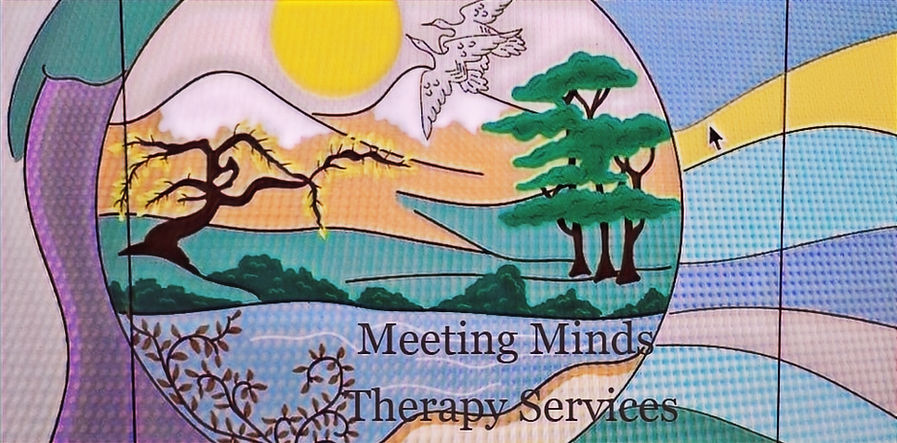Navigating Friendships: Knowing When to Let Go and What to Keep
- Lyn Reed
- Jun 15, 2025
- 4 min read
As we go through life, our friendships often change. These changes reflect our evolving circumstances, interests, and personal growth. Some friendships deepen, while others may fade.
Knowing when to let go of certain friendships and recognising which ones to nurture can be a challenging yet essential part of adult life.
In this blog post, we will explore the dynamics of evolving friendships, consider the signs that indicate it might be time to let go, and discuss how to identify which relationships are worth investing in.
The Natural Shift in Friendships
Friendships are not fixed; they change as we do. For instance, when a person moves to a new city for work or starts a family, their social circle often shifts.
According to a study conducted by the American Psychological Association, about 50% of friendships fade within seven years due to such life changes. While some friends remain close, others may become distant or even dissolve entirely.
The ongoing development of friendships depends on shared growth and interests. For example, if one person pursues a new hobby, like marathon running, and the other is not interested, this can create an imbalance that may affect their connection.
Friends often grow distant over time, so it's crucial to assess their importance rather than holding onto every relationship. A supervisor once advised me during a tough time: 'We can't bring everyone along; we must learn to leave some people behind'.
Signs It’s Time to Let Go
Letting go of a friendship can be difficult, but it is sometimes the healthiest choice for our well-being. Here are some clear signs that it may be time to reconsider a friendship:
One-Sided Efforts: A balanced friendship involves mutual effort. For instance, if you are the only one who remembers birthdays or makes plans, consider if the relationship is still serving you. The other person may not be as invested.
Diminished Enjoyment: If spending time together no longer brings happiness, it may be time to rethink the friendship. A study showed that 70% of people reported feeling drained after spending time with a friend who constantly complains. So, if conversations feel exhausting instead of uplifting, this is a significant warning sign.
Constant Drama: Relationships filled with negativity can take a toll on our mental health. If conflicts are frequent and we often feel stressed during interactions, it may be beneficial to step back.
Different Values: As we grow, our values can change. If our core beliefs are mismatched, it can create a sense of distance. For example, if one friend prioritises career advancement while the other seeks work-life balance, this difference can lead to disconnection.
Lack of Support: If we feel unsupported during tough times, it may be time to let go. It's essential to have friends who are there when you need them the most.
Feeling Second Best: Healthy friendships are about sharing joy and excitement, but with this kind of friendship, we can feel dismissed or overshadowed. This, in turn, can affect our self-esteem and lead us to feel 'second best'.
Recognising these signs can be tough, especially if we share a long history with someone. However, well-being should come first,
Recognising Worthy Friendships
Some friendships continue to offer great joy and support. Here are a few characteristics of relationships that are worth nurturing:
Mutual Respect: Respect is fundamental in healthy friendships. If both parties feel valued, it's a strong signal to maintain the relationship.
Shared Growth: Friends who inspire each other are invaluable. For example, a friend might motivate you to pursue a new skill or hobby. If your friendship encourages personal growth, it’s worth holding on to.
Emotional Support: A worthy friendship includes being there for each other through life's ups and downs. If you can rely on each other during hard times, cherish that bond.
Open Communication: Honest communication strengthens friendships. If you can talk through issues and know that misunderstandings can be resolved, your bond is likely to endure.
Joyful Experiences: If being around this person brings you happiness, this is a sign that the friendship is valuable. Surround yourself with those who add positivity to your life.
Identifying and nurturing friendships that embody these qualities can lead to more fulfilling relationships as you transition through different life stages.
How to Let Go Gracefully
If you've decided to let go of a friendship, how we handle this can make a significant difference. Here are some tips on how to let go gracefully:
Acknowledge Feelings: Understand that it’s natural to feel sad or conflicted. Experience these emotions as part of the healing process.
Communicate Openly: If appropriate, consider having an honest discussion about feelings. Sharing perspective can provide closure and might help both parties.
Set Boundaries: After deciding to end a friendship, setting boundaries can help protect our emotional health. This could mean limiting interactions or being clear about the new dynamics.
Focus on Self-Care: Take the time for self-care after letting go. Engaging in activities that make us happy and foster our well-being, like exercising or pursuing hobbies.
Stay Open to New Connections: While letting go of old friendships can be challenging, it creates space for new and meaningful relationships to form. We need to be open to meeting new people who align with our current goals and interests.
Embracing Change in Friendships
Friendships are a significant part of our lives, but the connections we maintain need to support our well-being. Recognising when to let go and understanding which friendships are worth keeping allows for healthier, more rewarding connections.
It is important to remember that ending a friendship is rarely straightforward. While open communication may be the preferred option to bring the relationship to an abrupt close, our well-being is more important than maintaining a friendship that has come to an end.





Comments